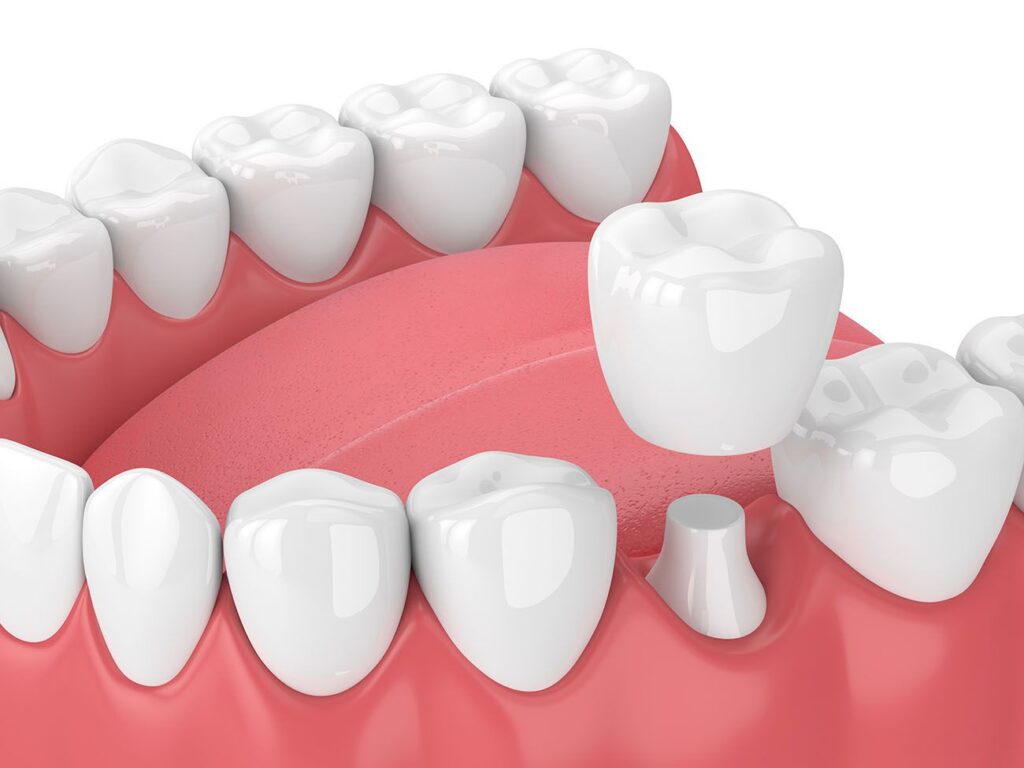Has your tooth sustained structural damage? While many dental issues will not go away on their own, a dentist can treat the problem and restore the look, health, and function of the damaged tooth with solutions like a dental crown.
This custom-made ceramic cap will fit over a tooth, offering a variety of benefits as well as long-lasting protection thanks to dental cement keeping it in place. You can feel more confident about this dental work when you know the specific advantages this tool can offer. Read on to find four reasons that a dentist might suggest restorative treatment with a dental crown.


4 Uses of Dental Crowns
Replace Eroded Tooth Enamel
Your teeth are designed to endure wear and tear from chewing and biting without issue usually. But over time, for a number of reasons, the outer layer of your teeth, enamel, may start to erode. This gradual structural dental damage will expose the vulnerable interior of your teeth, putting them at risk of greater harm and giving you side effects like tooth sensitivity.
Lost enamel will not regrow, but your dentist can use a dental crown to replace it. The durable ceramic material will protect the tooth from further harm and stop sensitivity pain. It will stay in place for fifteen or more years with proper care and maintenance.
Amend Tooth Breakage
A tooth could sustain a more acute structural injury due to a crack, chip, or fracture. Whether you feel pain or not, this qualifies as a dental emergency since it makes the tooth vulnerable to other dental dangers.
A dentist might use cosmetic dental solutions for minor chips or cracks. But more severe injuries will need a dental crown to cover the damaged part of the tooth. It will make the tooth appear whole again, restore its function, and keep it safe from other threats. Do not delay dental treatment for a broken tooth.
Brighten a Discolored Tooth
Though dental crowns are known for their restorative benefits, they can improve the aesthetic of a tooth too. If you have stubborn stains or discoloration on your tooth, a crown can cover these cosmetic flaws.
The dentist can consider your smile aesthetic goals when making your custom fixture so that it will improve the look as well as the health of your smile in the end. They will ensure you receive a gorgeous and natural finish that fits comfortably and securely in the mouth.
Support Other Dental Work
Dental crowns offer highly effective treatment on their own. But they can also support other dental work in many ways. For instance, a dentist will use a crown as a prosthetic tooth atop a single dental implant for optimal tooth replacement.
Dentists also use crowns when treating advanced tooth decay when a dental filling will not provide enough protective coverage. The crown will also shield a vulnerable tooth after root canal therapy. Learn more about this versatile dental treatment by calling your dentist today.
